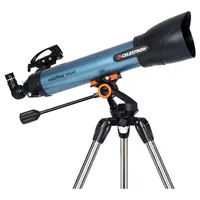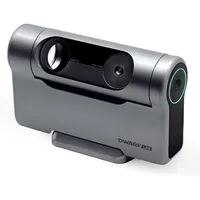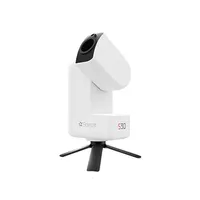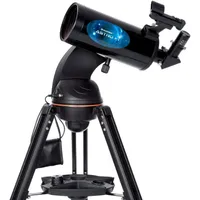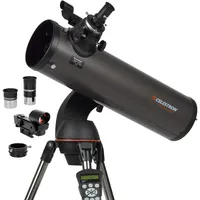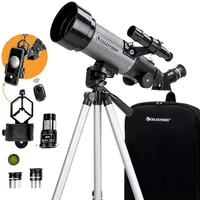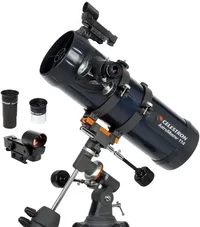Telescopes on Amazon: The best deals 2025
We bring you Amazon's best telescope deals with holiday prices on offer.

Whether this is your first adventure into the world of astronomy or you're comfortable behind a scope, Amazon has a range of telescopes on offer suitable for beginners to experienced skywatchers.
Shopping on Amazon is a great way to find bargains on top-quality stargazing gear with some of the best telescopes on the market, including excellent options under $500, being available.
If you don't see the perfect telescope here, be sure to check out our guides to Celestron telescope deals, Sky-Watcher telescope deals, or general telescope deals for more recommendations. Scroll down to discover the best Amazon telescope deals and start your astronomy journey today!
Telescopes on Amazon: Today's best deals June 2025
Read moreRead less▼
Save $40 on the Celestron Inspire 100AZ, which we think is the best budget telescope you can buy. Aside from being pocket-friendly, it's easy to get up and running with this scope, and it's relatively portable to boot.
Read moreRead less▼
Save $55 on this compact but powerful smart telescope that offers excellent performance and image quality. In our Dwarflab Dwarf 3 review, we were surprised by just how well it compared to more expensive smart scopes.
NOTE: Make sure you tick the 10% coupon box to get the discount.
Read moreRead less▼
Save $50 on the ZWO Seestar S30, which we think is the best portable smart telescope. It's also a breeze to use, supported by ZWO's app, and is capable of capturing deep space images.
Read moreRead less▼
Save $110 on a telescope that features in our best telescopes guide. In our Celestron Astro Fi 102 review, we found that it's reasonably priced and excellent for portability.
Read moreRead less▼
Save $110 on this Go-To telescope that comes with a very large aperture and plenty of accessories. It is an older model, but that helps it come in at a lower price point. If you want a more detailed look at this telescope, check out our Celestron NexStar 130SLT review.
Note: Make sure you tick the coupon box to get this price.
Read moreRead less▼
Save $52 on this lightweight, portable Celestron telescope which is perfect for beginners. It comes with a large 70mm objective lens as well as a bonus bag, tripod, moon filter, Bluetooth shutter release and a smartphone adaptor.
Note: Make sure you use the on-page coupon to get it at this price.
Read moreRead less▼
You can save $87 on the Celestron AstroMaster 114EQ. The telescope ships with a fully adjustable steel tripod, finderscope, 20mm and 10mm eyepieces.
Buying advice
When purchasing one of the telescopes on Amazon, or any telescope for that matter, you need to consider your budget and what you want from your stargazing experience. While there are annual sales events like Amazon Prime Day or Black Friday, you can still bag a bargain through the year.
There are three main types of telescope you'll see reduced, and each has different advantages, so we've explained each one below - so you know what to look out for. You can also check out our best telescopes guide for more information.
Refractors
These telescopes are usually best for providing high-magnification views of targets like planets and the moon. They're also very easy to set up and maintain and, thanks to their lower price point, they tend to be a popular option for beginners.
The one catch is that they do tend to suffer from a visual problem called 'chromatic aberration', where bright objects in the sky appear to be surrounded by a halo. However, this shouldn't dampen the experience for any viewers.
Reflectors
With wider apertures, these types of telescopes are able to take in more light and therefore better suited for spotting fainter objects. So if you're looking to stargaze at galaxies, nebulas and other low-magnification targets, these are the ones to investigate.
Unfortunately, these types of telescopes can suffer from something called the 'coma' effect, where objects appear elongated instead of spherical/ circular. Again, though, this is a minor issue - and probably something you can get used to at this low price point.
Catadioptric
There are two main catadioptric designs: the Maksutov-Cassegrain and Schmidt-Cassegrain. Both types often come with a computerized GoTo system, which can work out your position and location - and align with night sky targets that you program into the device. They fix the coma and chromatic aberration problems mentioned above but they also tend to be more expensive. That can put them out of the range of some beginners.
Typically, you'll find that the Schmidt-Cassegrain designs have bigger apertures, and the Maksutov-Cassegrain sport smaller apertures, so the former is better for fainter deep sky targets and the latter will offer high magnification views.
Breaking space news, the latest updates on rocket launches, skywatching events and more!
Ruth has worked across both print and online media for five years, contributing to national newspaper titles and popular tech sites. She has held a number of journalist roles alongside more senior editorial positions, and was formerly acting as a commissioning editor for Space.com until 2022.
- Chris McMullenContributing Writer
- Alexander CoxE-commerce Staff Writer
You must confirm your public display name before commenting
Please logout and then login again, you will then be prompted to enter your display name.
